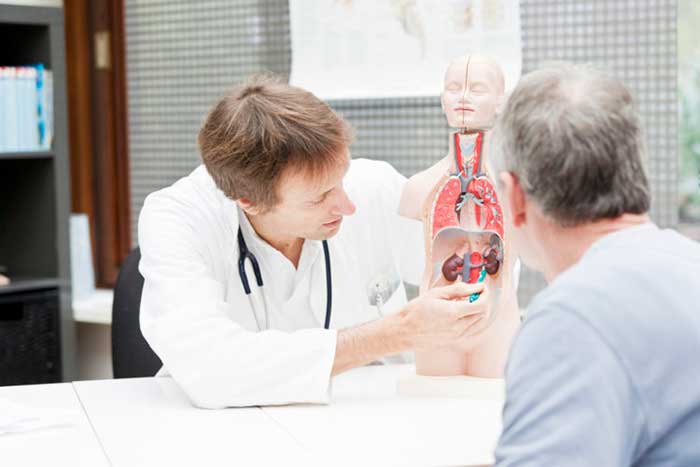Spotlight on the Symptoms of Kidney Cancer

The kidneys are found in the lower back. Each kidney is about the shape of a fist. When cancer cells develop in one or both of these organs, it’s referred to as kidney cancer. Like all forms of cancer, early detection is crucial for the most favorable outcome. Unfortunately, the signs and symptoms of kidney cancer don’t typically develop until the later stages of the disease. If you do notice anything abnormal, talk to a urologist right away. Prompt medical care could save your life.
Urologic Symptoms
Urologic symptoms are changes that involve the urinary system or region. Some patients with kidney cancer report having low back pain on one side that isn’t caused by an injury. It may also be possible to feel a lump or a mass in this area. Hematuria is another possible urologic sign of kidney cancer. This refers to blood in the urine. The urine may look pinkish, red, or even darker, like cola. Note that hematuria can also be caused by urinary tract infections (UTIs), kidney infections, and bladder or kidney stones. Seeing blood in the urine doesn’t automatically mean that you have cancer. However, you should consult a urologist promptly, and hematuria should never be considered “normal.”
Systemic Symptoms
In addition to the localized symptoms, patients may experience symptoms that can affect the whole body. Excessive fatigue is one example of a systemic symptom. Others include unintentional weight loss not caused by dieting and a persistent fever that isn’t caused by an infection. Some patients may report a loss of appetite. Because of the excessive fatigue, patients may have a blood test to check for anemia. Those with kidney cancer may be diagnosed with a low red blood cell count.
You’ll find state-of-the-art diagnostics and cutting-edge care at Urology Associates, P.C. Our cancer treatment specialists in Tennessee focus on treating the whole patient by developing personalized treatment plans and providing compassionate, attentive care. You can call us at 888-245-0702 to request a visit with one of our highly trained urologists.